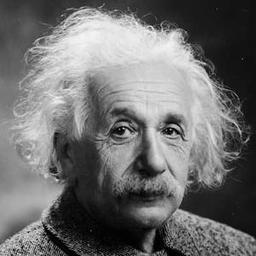60 Quotes
"As a company approaches 100 employees, founding leaders confront an important reality: It’s time to let go. It’s simply impossible to be plugged into everything. At this stage, you are probably managing managers, and more than ever have to empower your leaders to, well, lead!"
— Julia Austin
How Scale Changes a Manager's Responsibilities"In fact, when founding CEOs don’t learn to step up into their roles and empower their leaders, investors and board members begin to lose confidence in the founding CEO’s ability to operate at scale and consider whether to replace them."
— Julia Austin
How Scale Changes a Manager's Responsibilities"When it comes to employees, there are two areas where CEO/founders often get tripped up as their companies grow: hiring and people management. Stay close to the hiring process for as long as possible in the early stages."
— Julia Austin
How Scale Changes a Manager's Responsibilities"First 20-30 employees. If you have inexperienced managers, review candidate resumes together with them and establish selection guidelines for what qualifies a candidate for a round of interviews."
— Julia Austin
How Scale Changes a Manager's Responsibilities"From 50 to 100 employees. This is a transition period in which you may sit in on candidate reviews for key hires, when the team is deciding whether to make an offer and why. Your role is not necessarily to make the decision, but to guide and mentor the team through the decision process."
— Julia Austin
How Scale Changes a Manager's Responsibilities"More than 100 employees. Let go! If a company lacks clear guidelines at this point, which manifests as bad culture or heavy voluntary or involuntary attrition, then you need to rework the wheel with your hiring team. Otherwise, it’s time to set your team free to make the right calls for their teams’ needs."
— Julia Austin
How Scale Changes a Manager's Responsibilities"Zero-20 employees. Early on, just like hiring for the first time, you may be learning how to manage people for the first time. Get help—don’t try to figure it out yourself."
— Julia Austin
How Scale Changes a Manager's Responsibilities"Read as much as you can and listen to podcasts like Reboot or Masters of Scale."
— Julia Austin
How Scale Changes a Manager's Responsibilities"From 20-30 employees. The best practice for team size is eight (recently termed the “two-pizza team rule” by Jeff Bezos)."
— Julia Austin
How Scale Changes a Manager's Responsibilities"Ideally, bring in some managers who know how to manage versus just promoting from within."
— Julia Austin
How Scale Changes a Manager's Responsibilities"More than 30 employees. As managers start working for you, you need to trust them as leaders of their own teams and, similar to setting the hiring guidelines, your job is to set the people-management guidelines."
— Julia Austin
How Scale Changes a Manager's Responsibilities"Companies at this stage often wait too long to hire people experts—both human resources managers and experienced recruiters who get the startup-to-scale scene. That's a big mistake."
— Julia Austin
How Scale Changes a Manager's Responsibilities"Investing money in these roles early will save you tons of time and money as you scale."
— Julia Austin
How Scale Changes a Manager's Responsibilities"Every early-stage CEO/founder I know is shocked to realize the power they wield. Even if you consider yourself to be “one of the people,” everything you say and do has more impact than you can imagine."
— Julia Austin
How Scale Changes a Manager's Responsibilities"If you’re a product-centered CEO/founder (versus, say, marketing- or sales-centered), the thought of stepping too far away from product details probably sounds frightening."
— Julia Austin
How Scale Changes a Manager's Responsibilities"That said, if you have to be part of every product session or review before release, your company will never get anything done—or learn how to do it at scale."
— Julia Austin
How Scale Changes a Manager's Responsibilities"As early as you can in your company’s lifetime, articulate your company’s True North and product guardrails, and evangelize it like crazy until it’s in the company's DNA."
— Julia Austin
How Scale Changes a Manager's Responsibilities"Establish a high-level product roadmap that extends no more than 12-18 months; you have no idea how your products or the market will evolve beyond that."
— Julia Austin
How Scale Changes a Manager's Responsibilities"As the company scales beyond more than 100 employees, you will shift from attending routine product meetings and reading PRDs or briefs to trusting that your team knows what to build and how to follow the high-level roadmap."
— Julia Austin
How Scale Changes a Manager's Responsibilities"Once you have a decently sized product team (at least 20 employees), you must have great product leaders and designers."
— Julia Austin
How Scale Changes a Manager's Responsibilities"As you scale, you must shift your attention from how to what. At fewer than 100 employees, you will think about ""the how"" of every aspect of the business"
— Julia Austin
How Scale Changes a Manager's Responsibilities"As you scale and hire experts in these areas, the goal is to let go and empower them to decide how. Your job is to make the desired outcomes clear."
— Julia Austin
How Scale Changes a Manager's Responsibilities"If your leaders feel that you won’t give them the keys, that you are backseat driving or monitoring their every move, you will not establish trust or allow them to move your company forward."
— Julia Austin
How Scale Changes a Manager's Responsibilities"DNA. I’ve seen too many talented people become poor performers once a company started to scale simply because they did not have big-company DNA or because the company did not ensure they were in roles in which they could continue to thrive."
— Julia Austin
How Scale Changes a Manager's Responsibilities"Please pay attention to your early hires as they and the company grow. If you see signs of trouble, consider whether an employee should remain and contribute another way or if it's time to part ways–the company has outgrown them."
— Julia Austin
How Scale Changes a Manager's Responsibilities"Cross-team dynamics. As the company grows, not only do new teams form and new managers lead, but there can also be cross-team dynamics that create tension."
— Julia Austin
How Scale Changes a Manager's Responsibilities"Pay attention to how these interdependent teams interact and make sure your team leaders are as passionate about how they partner and collaborate with their peers as they are about how their own teams perform."
— Julia Austin
How Scale Changes a Manager's Responsibilities"Resist fiefdoms and resolve rifts between teams as soon as you suspect there’s an issue."
— Julia Austin
How Scale Changes a Manager's Responsibilities"Be thoughtful about salary structures and be mindful that haphazardly compensating new hires early on or bumping people up to retain them will undoubtedly create a need to recalibrate everyone’s compensation down the road."
— Julia Austin
How Scale Changes a Manager's Responsibilities"Employees are driven by three major motivators: The work they do, the people they do it with, and fair compensation for that work."
— Julia Austin
How Scale Changes a Manager's Responsibilities"Consider Maslow’s Hierarchy of Needs when it comes to your employees:"
— Julia Austin
How Scale Changes a Manager's Responsibilities"The human impact of hypergrowth. Finally, people don’t always grow as fast as their companies and can easily burn out or perform poorly if you’re scaling at hypergrowth speed."
— Julia Austin
How Scale Changes a Manager's Responsibilities"As an aspiring product manager (PM), there are three primary considerations when evaluating the role: Core Competencies, Emotional Intelligence (EQ) and Company Fit."
— Julia Austin
What It Takes to Become a Great Product Manager"I disagree because, as Martin Eriksson points out, “Product managers simply don’t have any direct authority over most of the things needed to make their products successful — from user and data research through design and development to marketing, sales, and support.”"
— Julia Austin
What It Takes to Become a Great Product Manager"Aspiring PMs should consider three primary factors when evaluating a role: core competencies, emotional intelligence (EQ), and company fit."
— Julia Austin
What It Takes to Become a Great Product Manager"conducting customer interviews and user testing"
— Julia Austin
What It Takes to Become a Great Product Manager"These core competencies are the baseline for any PM, and the best PMs hone these skills over years of defining, shipping, and iterating on products."
— Julia Austin
What It Takes to Become a Great Product Manager"defining and tracking success metrics"
— Julia Austin
What It Takes to Become a Great Product Manager"A good PM may know the dos and don’ts of a customer interview, but the best PMs have the ability to empathize with customers in that interview, are tuned into their body language and emotions, and can astutely suss out the pain points that the product or feature will address."
— Julia Austin
What It Takes to Become a Great Product Manager"Relationship management. Probably one of the most important characteristics of a great PM is their relationship management skills. By forming authentic and trustworthy connections with both internal and external stakeholders, the best PMs inspire people and help them reach their full potential."
— Julia Austin
What It Takes to Become a Great Product Manager"Self-awareness. PMs must be self-aware so as to remain objective and avoid projecting their own preferences onto users of their products."
— Julia Austin
What It Takes to Become a Great Product Manager"Self-management. Being a PM can be incredibly stressful. The CEO wants one thing, the engineering team another, and customers have their own opinions about feature priorities."
— Julia Austin
What It Takes to Become a Great Product Manager"Social awareness. According to Goleman, the competencies associated with being socially aware are empathy, organizational awareness, and service. PMs must understand customers’ emotions and concerns about their product as much as they understand the concerns of the sales team on how to sell that product, or the support team on how to support it, or the engineering team on how to build it."
— Julia Austin
What It Takes to Become a Great Product Manager"In fact, taking these skills and personality traits and applying them to the right company is what will ultimately guarantee success."
— Julia Austin
What It Takes to Become a Great Product Manager"Here are a few of the key areas in which companies differ in what they want from a PM:"
— Julia Austin
What It Takes to Become a Great Product Manager"Technical skill. The type of product, who uses it, and the type of company will determine how technical a PM needs to be."
— Julia Austin
What It Takes to Become a Great Product Manager"Company philosophy about PM. Every company has a different philosophy about the product development process and where PMs fit into that process."
— Julia Austin
What It Takes to Become a Great Product Manager"PM drives engineering. This is a “throw it over the wall” approach, where PMs gather requirements, write the quintessential product requirements document, and hand it off to engineering to spec out the technical requirements."
— Julia Austin
What It Takes to Become a Great Product Manager"Con: Engineers lose sight of the big picture and do not develop empathy for customers, which can lead to a poor user experience."
— Julia Austin
What It Takes to Become a Great Product Manager"Engineering drives product. More technically oriented product companies (cloud, big data, networking) tend to be engineering-driven, where engineers are advancing the science in their domain and PMs validate solutions or create front end access points (UIs, APIs) to tap into this new technology."
— Julia Austin
What It Takes to Become a Great Product Manager"The PM-engineering partnership. In these cases, there is a strong yin-yang between PM and engineering, with joint discovery, decision making, and shared accountability. Engineers join PMs in customer interviews, and PMs are in sprint meetings to help unblock tasks or clarify requirements."
— Julia Austin
What It Takes to Become a Great Product Manager"Stage of company. The role of the PM at a startup is far more likely to be responsible for “all the things,” whereas at a mature company their role will be more distinctly defined."
— Julia Austin
What It Takes to Become a Great Product Manager"Startup. Beyond discovery, definition, and shipping, PMs may also be responsible for pricing, marketing, support, and potentially even sales of the product. These PMs thrive in a scrappy environment and are comfortable with ambiguity and frequent changes to direction as the company works towards product-market fit and learns to operate at scale."
— Julia Austin
What It Takes to Become a Great Product Manager"Mature company. The PM may have a narrower scope and have coworkers who handle pricing, go-to-market strategies, and so on. And they are likely to be part of a larger team of product managers."
— Julia Austin
What It Takes to Become a Great Product Manager"Founder/CTO/CEO relationship with PM. Especially in earlier-stage companies, it’s important to know how involved the founder/CEO/CTO is in the product process. If they are deeply involved, the PM role may play more of a support role, to flesh out their ideas or validate concepts with customers, versus conceiving and driving ideas of their own."
— Julia Austin
What It Takes to Become a Great Product ManagerExplore More Quotes 📚
Want to Save Quotes?
Glasp is a social web highlighter that people can highlight and organize quotes and thoughts from the web, and access other like-minded people’s learning.

















